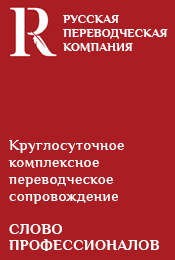Paradoxal semantics of Russian suffixation
П.Р. Палажченко
Полный текст статьи,
опубликованной с сокращениями.
In a recent translation of “War and Peace,” Platon Karataev, Tolstoy’s quintessential kindly Russian peasant, addresses his interlocutor as “little falcon.” Oops – it just doesn’t sound right, reminding one, perhaps, of someone from James F. Cooper’s “The Last of the Mohicans.” Remember Montigomo Hawk’s Claw?
Actually, “little falcon” is a literal translation of the Russian word sokolik, a word one can still hear from older people as a form of address. It is rather intimate and can be a term of endearment. The Russian language is full of such words, for two reasons. First, the Russian national character is expressive and emotional, and one aspect of it is that it has so many diminutive adjectives and nouns (hence, repeated attempts to render them in English by the word “little.”). Secondly, the language itself offers a variety of ways to be expressive and emotional. One of them is suffixes. Russian is sometimes called, correctly in my view, the language of suffixes.
Russian suffixes express an extremely wide range of emotions and attitudes. They can produce words that are caressing, diminutive, familiar, vulgar, teasing, scornful, pejorative, or contemptuous. Most other languages find it difficult to pack so much punch in so little space.
The Polish linguist Anna Wierzbicka has studied the way Russian suffixes work with Russian personal names. Her findings are fascinating. She points out that the meanings expressed by names with suffixes are so rich and complex that they cannot be represented by simple labels such as ‘affectionate’ or ‘scornful.’ Some are downright ambivalent. The suffix –ka (as in Irka or Mashka) may express familiarity or “anti-respect” but it becomes diminutive and even caressing if you twist the name just a bit, as in Irinka or Mashenka.
-Ik (the suffix used in Karataev’s sokolik) is diminutive when used with masculine names. People use it when they talk to small boys, who begin to resent it in their early teenage years (I remember I did, when they called me Pavlik). It is also used, though more rarely, with feminine names, so that Svetlana becomes Svetik. I agree with Wierzbicka that in this case the emotional meaning is not easy to describe. It establishes a ‘special relationship’ which is private and playful.
In English, suffixes are rarer, and they are less expressive. Most commonly, standard short forms such as Tom or Bill are used with regard to people one knows well. Sometimes, such short forms are preferred by the person and are used officially. In fact, even names such as Jimmy or Jerry can become official. Leonid Brezhnev’s letter of congratulations was addressed to ‘James Earl Carter’ (the name Carter, the president-elect, never used) because Brezhnev’s assistants simply could not believe that ‘Jimmy Carter’ had become the man’s official name.
Translators of fiction face enormous problems in rendering the expressive range conveyed by Russian suffixes. I have noticed, though, that recently simple shortening has become more widespread, at least in male names. More and more, people prefer to be called Vlad or Stas. We’ll see how that trend plays out.
- Войдите на сайт для отправки комментариев







thanks
thanks